
“Welcome Back!!! <then a series of hugs> You got fat!” - This was the typical greeting that I got when I arrived in my Japanese hometown, Fukuoka. If you guys do not remember, this is where I studied a couple of years back. This time I came back to give out a lecture regarding my thesis project, participate in a symposium + a couple of workshops/fieldworks and meetings. On the first day my professor warned me of the tight schedule and he was afraid that I would get exhausted.. but of course I did not listen and participated in anything that I was invited for.
Anyways I was really surprised to see that nothing has really changed in the city. I know its only been 2 years since I left but everything is still exactly the same... from the obnoxiously loud sounds of summer cicadas that are coming from moss covered trees, to the same stores the flocked each train station with the same familiar people yelling “irasshaimase”. It really did feel like I never left... I was all over the place when I lived in Fukuoka, so almost every street corner was nostalgic in various ways. So in other words, yes there are (many) times when I was in a car with my professor and would pass by certain streets and I would uncontrollably giggle like a little japanese school girl (hihihihihihi) as I recall random stories that only I find amusing.
My lecture went well... I think, people that were there understood it and my intent, they were still slightly perplexed about my project but I found that they were more open to the idea of cemetery living in Japan that here in the US. Which was not a complete surprise... Unfortunately the day of my lecture there was a heavy torrential rain/typhoon happening in the entire Kyushu Island, so attendance was lower than expected but I am still glad that it all happened.
The heavy rains caused a lot of problems when I was there. Trains were cancelled, highways were closed and flooding almost everywhere. A lot of people were affected especially in Oita and Kumamoto Prefecture, places that I am very much familiar with. In the city of Hita my second hometown in Japan, flooding occurred twice within a week and a half. According to the news in two days it rained for what is equivalent to a month's worth. The first flood was about chest deep while the second one was about waist deep. Volunteers from all over the place including my friends and I help clean up houses that were severely flooded. We removed the mud that were trapped between the raised floor boards and the foundation. It was tiring but well worth the effort. Volunteers even got free onsen pass for helping residents!
The torrential rain/typhoon also affected our workshop in Takahama. Our 4.5 hour (~225km/140mi) commute from Fukuoka to Takahama turned into an 8 hour trip. The bus driver managed to safely avoid the flooded areas by taking very narrow local roads. But I can say that a long trip like this a good team builder because the bus was comprised by people from Samsung Japan and Kyushu University. And after 4 themed self-introductions (i.e. 10 year plan, likes and dislikes, something interesting about yourself...oh and I forgot the last one) we can all pretty much say we know each other by now...
Anyways the workshop theme is called (in loose translation) “Initiating local design for global Takahama”. The premise of this workshop is that participants (Japan Rail Kyushu + Samsung Japan + Kyushu University + Locals) are separated by groups of their choice that are suppose to tackle different themes like product design, eco-museum, town preservation, social media and new agriculture (grapes). Then various fieldworks were done by each team in order to brainstorm some ideas and propose in front of the entire community. Everybody came up with pretty interesting ideas, but what is more interesting is the mode of presentation each team used. Some teams created a storyboard, some created a small play, some is a mixture of comedy skits and enumerating facts. It reminded me of presentations in elementary school, fun, informative and full of energy!
Speaking of another planning, I accompanied my friend who is studying art project management in a press release of Beppu Project's Contemporary Arts Festival called “Mixed Bathing Worlds 2012” that will start October 06 – December 02. It is called “Mixed Bathing World” because Beppu is a pretty popular Onsen (Hot spring) destination in Japan and Beppu Project intend to bring different artists from different countries and various backgrounds and have them infiltrate the city by creating various installations, impromptu+scheduled performances in various locations and creating pop up shops and cafes. I was further informed about the festivities that night over dinner with various Beppu Project key personnel. We had a great conversation about the arts and its role and importance in the city. We also talked about the current issues that face smaller cities in Japan: Population decrease, Urban Migration, division within the community among many others. For Beppu, both the city office and various npo's are working together to re-invent the city's identity in order to attract more visitors and re-energize its citizens. What I find unique is that their end goal in all of this is not to make Beppu an international metropolis, but rather an International Town that welcome's everybody.
Kikuchi is a small sleepy town in Kumamoto Prefecture. During its heydays, Kikuchi was a Shogun Town complete with a bustling economy and boasts one of the biggest castles in Japan called Kumamoto Castle. Now the town is very much disjointed. Therefore our class together with Kikuchi town officials created a monthly event called “Morning Kei Truck Market”. Volunteers come together and block a major street and turn it to a pedestrian street where people can shop and interact with local farmers and vendors that are in their respective parked Kei Truck (Highly utilitarian mini 4x4 trucks from Japan). Kikuchi's morning market was fun but a lot of work, we were selling some calligraphy boards and used clothes from various students in Kyushu University all for 100 yen or less. I really liked talking to locals and asking them about their life in Kikuchi. We also held an event with local children teaching them the traditional way of plastering walls.
I really enjoyed visiting small towns in Japan. It is very foreign from whatever I am used to and the locals are generally really really.. and may I stress it again, REALLY nice.
Picture Time!
Kyushu University Entrance... Seriously nothing has changed even those rolling bollards that is "suppose" to control bike and pedestrian traffic.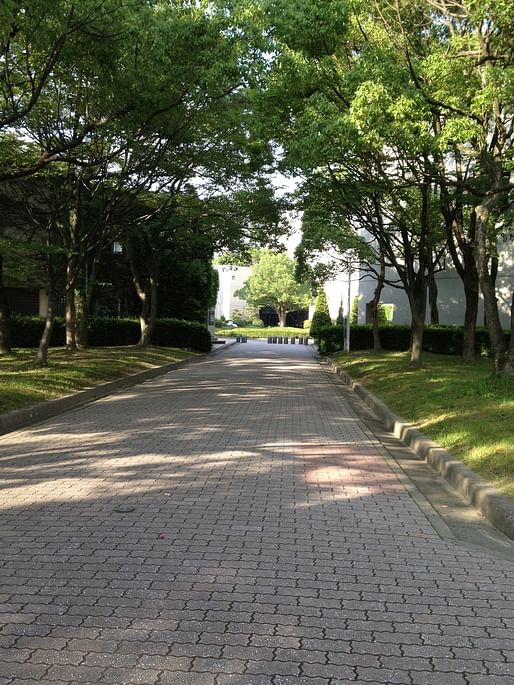
Ijiri Dormitory >> my former dorm, I visited our dorm manager who was extremely surprised when I just popped by.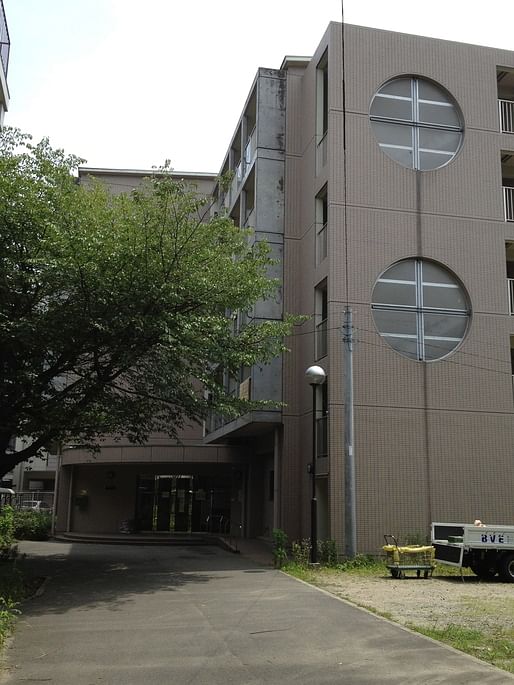
Welcome Party in my lab.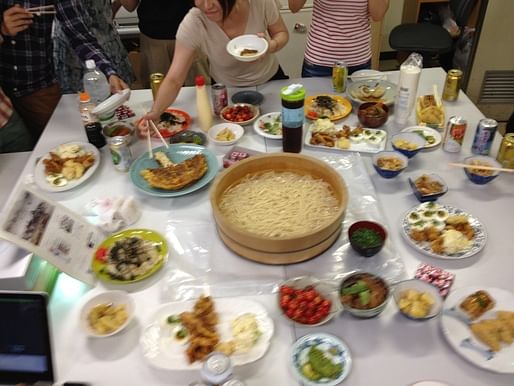
Me during my lecture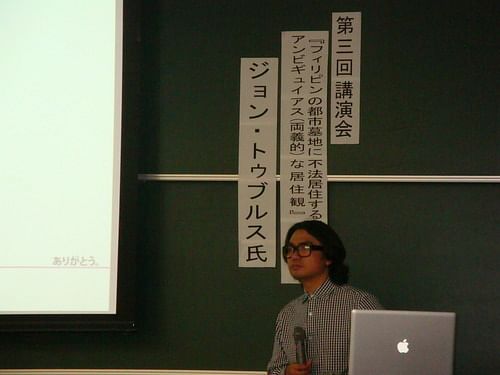
Dinner with Beppu Project.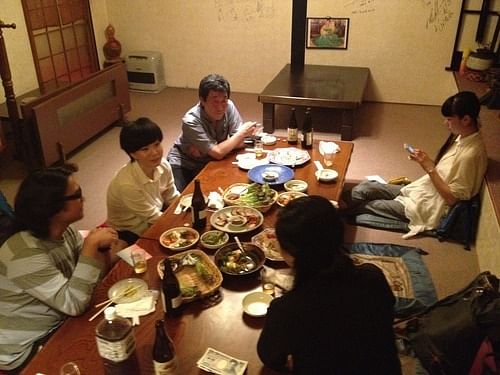
Flooding in Hita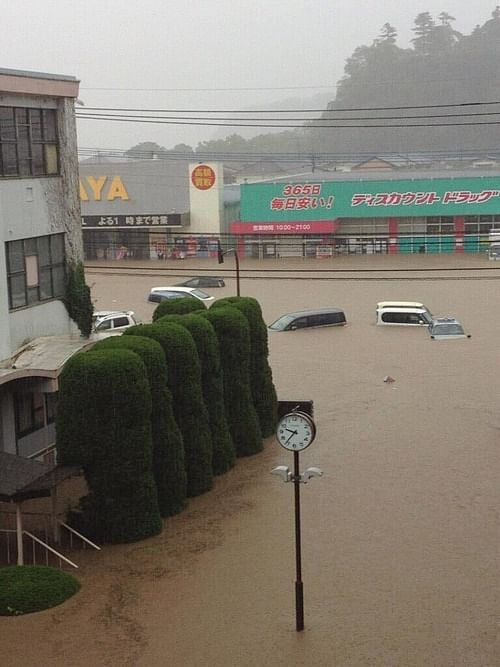
Landslide caused by the heavy rains in Kuroki, Kumamoto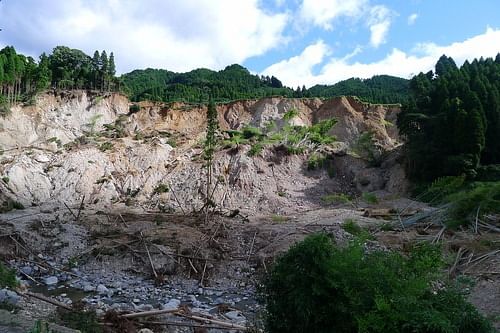
Failed Levy+Collapsed house in Kuroki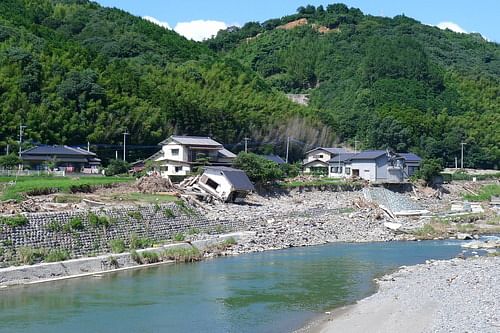
A river in Kumamoto during the heavy torrential rain / typhoon. This was taken on our way to our Takahama Workshop.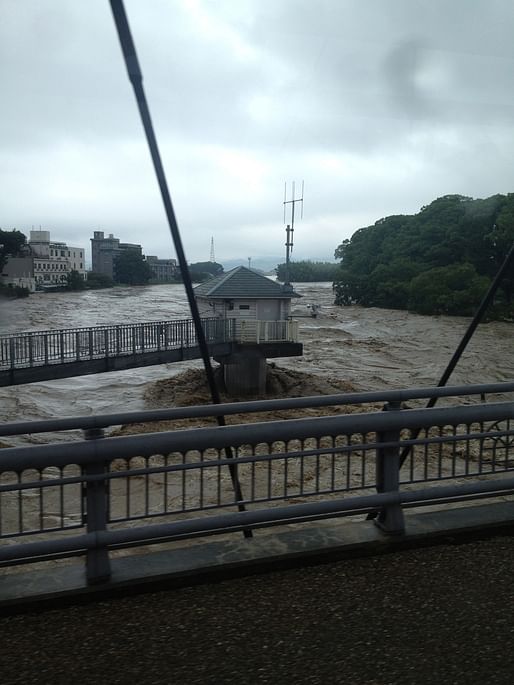
8-hr Bus Ride to Takahama.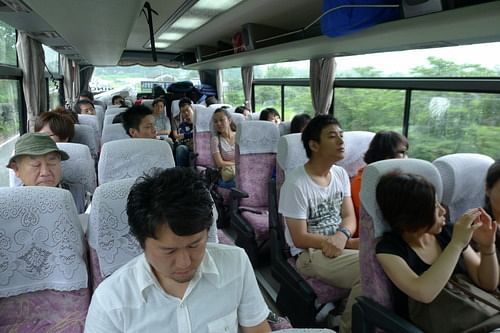
1st Beach day in 2012, Right after the storm in Takahama, Amakusa.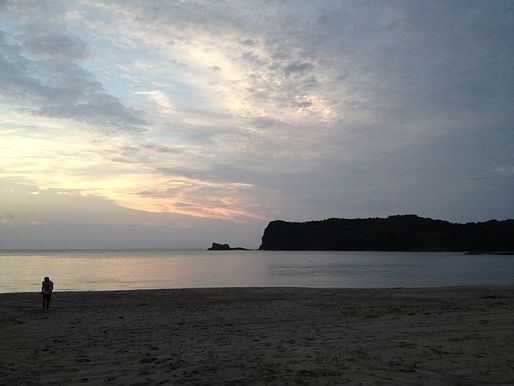
This is Takahama.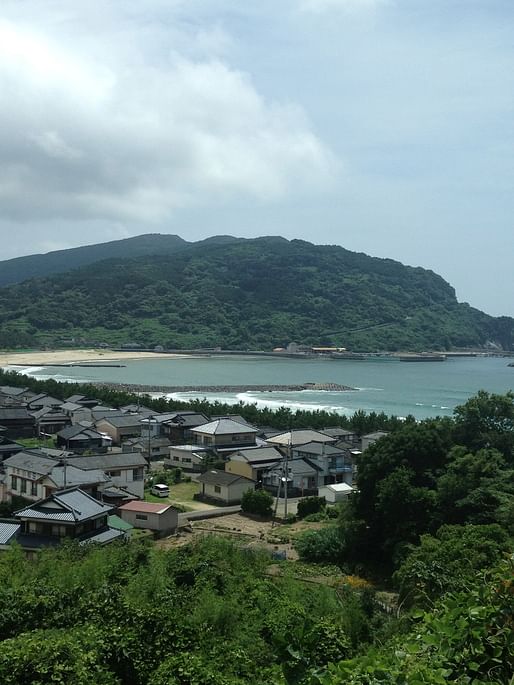
Takahama Field work.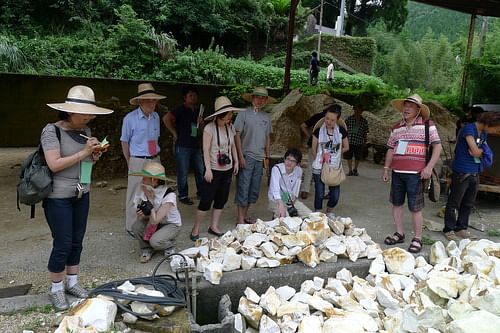
Takahama workshop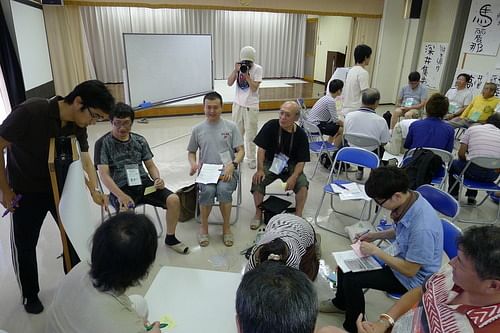
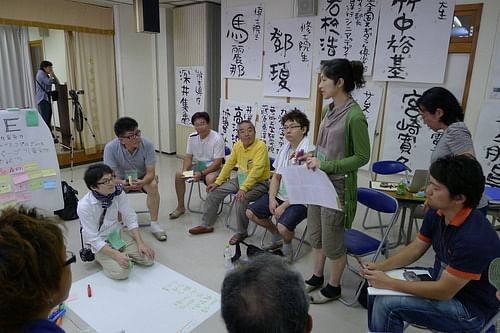
Takahama Symposium with Chiba san and Okada san.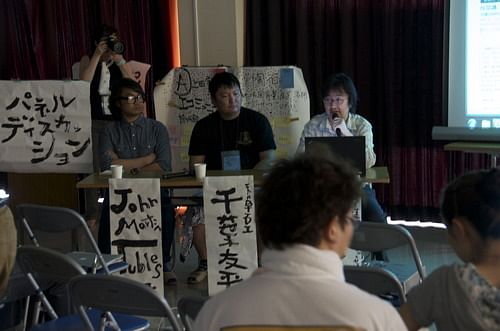
Flood victim's house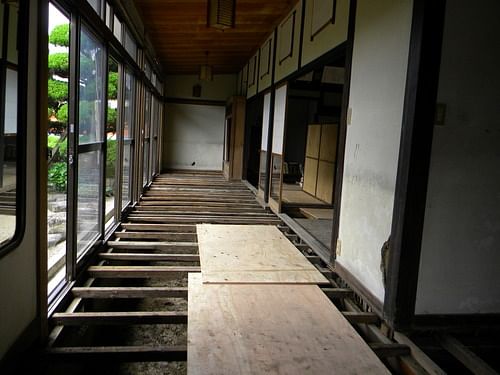
Hita Clean Up Volunteer crew.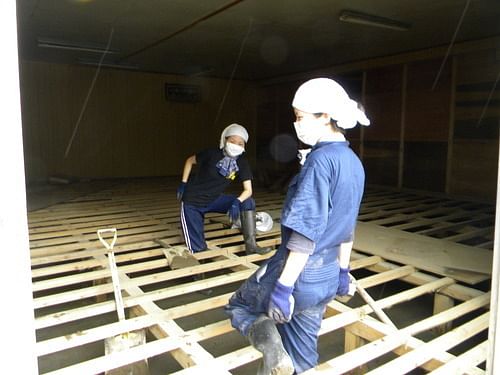
Learning to make the BEST Yakisoba.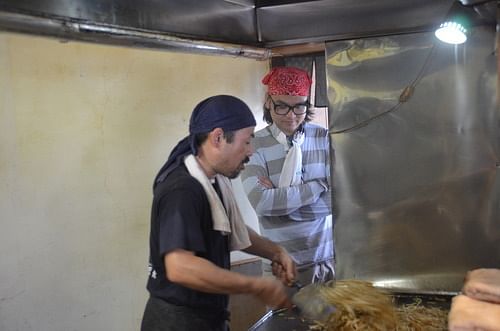
Kikuchi Morning Kei-truck Market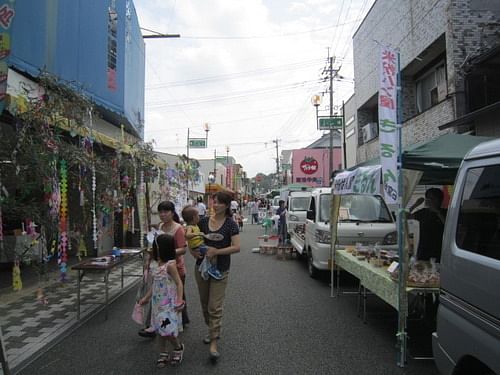
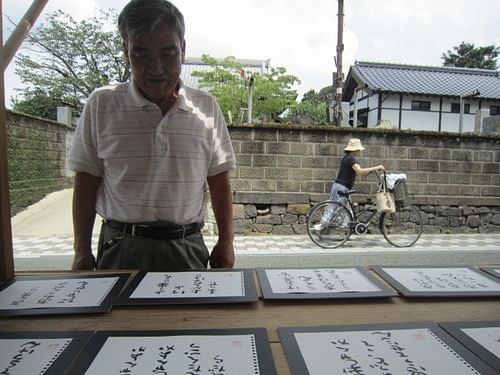
No Comments
Block this user
Are you sure you want to block this user and hide all related comments throughout the site?
Archinect
This is your first comment on Archinect. Your comment will be visible once approved.